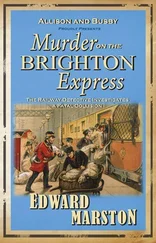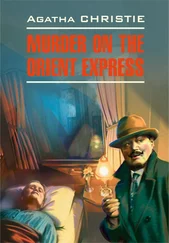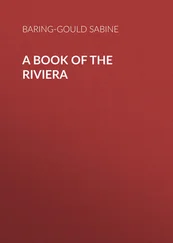
TP FIELDENis a biographer, broadcaster and journalist. The Riviera Express is the first in the English Riviera Murders series featuring Miss Dimont.
For CRCW
Dei due, la migliore
Cover
Title Page
About the Author TP FIELDEN is a biographer, broadcaster and journalist. The Riviera Express is the first in the English Riviera Murders series featuring Miss Dimont.
Dedication For CRCW Dei due, la migliore
ONE
TWO
THREE
FOUR
FIVE
SIX
SEVEN
EIGHT
NINE
TEN
ELEVEN
TWELVE
THIRTEEN
FOURTEEN
FIFTEEN
SIXTEEN
SEVENTEEN
EIGHTEEN
NINETEEN
TWENTY
TWENTY-ONE
TWENTY-TWO
TWENTY-THREE
TWENTY-FOUR
TWENTY-FIVE
TWENTY-SIX
TWENTY-SEVEN
Extract
Copyright
When Miss Dimont smiled, which she did a lot, she was beautiful. There was something mystical about the arrangement of her face-furniture – the grey eyes, the broad forehead, the thin lips wide spread, her dainty perfect teeth. In that smile was a joie de vivre which encouraged people to believe that good must be just around the corner.
But there were two faces to Miss Dimont. When hunched over her typewriter, rattling out the latest episode of life in Temple Regis, she seemed not so sunny. Her corkscrew hair fell out of its makeshift pinnings, her glasses slipped down the convex nose, those self-same lips pinched themselves into a tight little knot and a general air of mild chaos and discontent emanated like puffs of smoke from her desk.
Life on the Riviera Express was no party. The newspaper’s offices, situated at the bottom of the hill next door to the brewery, maintained their dreary pre-war combination of uprightness and formality. The front hall, the only area of access permitted to townsfolk, spoke with its oak panelling and heavy desks of decorum, gentility, continuity.
But the most momentous events in Temple Regis in 1958 – its births, marriages and deaths, its council ordinances, its police court and its occasional encounters with celebrity – were channelled through a less august set of rooms, inadequately lit and peopled by journalism’s flotsam and jetsam, up a back corridor and far from the public gaze.
Lately there’d been a number of black-and-white ‘B’ features at the Picturedrome, but these always portrayed the heady excitements of Fleet Street. Behind the green baize door, beyond the stout oak panelling, the making of this particular local journal was decidedly less ritzy.
Far from Miss Dimont lifting an ivory telephone to her ear while partaking of a genteel breakfast in her silk-sheeted bed, the real-life reporter started her day with an apple and ‘The Calls’ – humdrum visits to Temple’s police station, its council offices, fire station, and sundry other sources of bread-and-butter material whose everyday occurrences would, next Friday, fill the heart of the Express .
Like a laden beachcomber she would return mid-morning to her desk to write up her gleanings before leaving for the Magistrates’ Court, where the bulk of her work, from that bottomless well of human misdeeds and misfortunes, daily bubbled up.
After luncheon, usually taken alone with her crossword in the Signal Box Café, she would return briefly to court before preparing for an evening meeting of the Town Council, the Townswomen’s Guild, or – light relief – a performance by the Temple Regis Amateur Operatic Society.
Then it would be home on her moped, corkscrew hair blowing in the wind, to Mulligatawny, whose sleek head would be staring out of the mullioned window awaiting his supper and her pithy account of the day’s events.
Miss Dimont, now unaccountably beyond the age of forty, had the fastest shorthand note in the West Country. In addition, she could charm the birds out of the trees when she chose – her capacity to get people to talk about themselves, it was said, could make even the dead speak. She was shy but she was shrewd; and if perhaps she was comfortably proportioned she was, everyone agreed, quite lovely.
Why Betty Featherstone, her so-called friend, got the front-page stories and Miss Dimont did not was lost in the mists of time. Suffice to say that on press day, when everyone’s temper shortened, it was Judy who got it in the neck from her editor. Betty wrote what he wanted, while Judy wrote the truth – and it did not always make comfortable reading. She didn’t mind the fusillades aimed in her direction for having overturned a civic reputation or two, for ever since she had known him, and it had been a long time, Rudyard Rhys had lacked consistency. Furthermore, his ancient socks smelt. Miss Dimont rose above.
Unquestionably Devon’s prettiest town, Temple Regis took itself very seriously. Its beaches, giving out on to the turquoise and indigo waters which inspired some wily publicist to coin the phrase ‘England’s Riviera’, were white and pristine. Broad lawns encircling the bandstand and flowing down towards the pier were scrupulously shaved, immaculately edged. Out in the estuary, the water was an impossible shade of aquamarine, its colour a magical invention of the gods – and since everyone in Temple agreed their little town was the sunniest spot in England, it really was very beautiful.
It was far too nice a place to be murdered.
*
Confusingly, the Riviera Express was both newspaper and railway train. Which came first was occasionally the cause for heated debate down in the snug of the Cap’n Fortescue, but the laws of copyright had not yet been invented when the two rivals were born; and an ambitious rail company serving the dreams of holidaymakers heading for the South West was certainly not giving way to a tinpot local rag when it came to claiming the title. Similarly, with a rock-solid local readership and a justifiable claim to both ‘Riviera’ and ‘Express’ – a popular newspaper title – the weekly journal snootily tolerated its more famous namesake. If neither would admit it, each benefited from the other’s existence.
Before the war successive editors lived in constant turmoil, sometimes printing glowing lists of the visitors from another world who spilled from the brown and cream liveried railway carriages (‘The Hon. Mrs Gerald Legge and her mother, the novelist Barbara Cartland, are here for the week’). At other times, Princess Margaret Rose herself could have puffed into town and the old codgers would have ignored it. Rudyard Rhys saw both points of view so there was no telling what he would think one week to the next – to greet the afternoon arrival? Or not to bother?
‘Mr Rhys, we could go to meet the 4.30,’ warned his chief reporter on this particular Tuesday. ‘But – also – there’s a cycling-without-lights case in court which could turn nasty. The curate from St Margaret’s. He told me he’s going to challenge his prosecution on the grounds that British Summer Time has no substantive legal basis. It could be very interesting.’
‘Rrrr.’
‘Don’t you see? The Chairman of the Bench is one of his parishioners! Sure to be an almighty dust-up!’
‘Rrrr . . . rrr.’
‘A clash between the Church and the Law, Mr Rhys! We haven’t had one of those for a while!’
Rudyard Rhys lit his pipe. An unpleasant smell filled the room. Miss Dimont stepped back but otherwise held her ground. She was all too familiar with this fence-sitting by her editor.
Читать дальше













